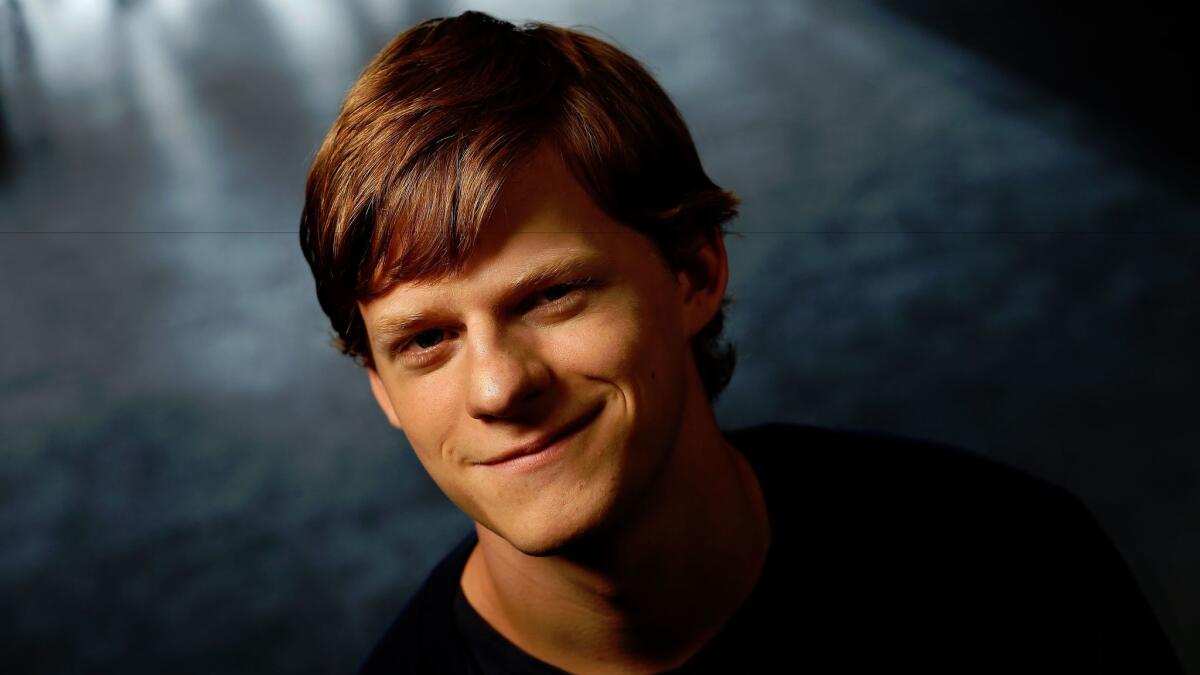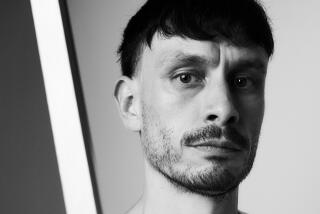Lucas Hedges finds the lightness within the dark drama of ‘Manchester by the Sea’

Actor Lucas Hedges had his first film role at age 10, appearing as an extra in his father Peter Hedges’ film, “Dan in Real Life.” “I had a line, but it was cut,” he said. He’s come a long way since then. Now almost 20, Hedges has a pivotal (and critically acclaimed) role in “Manchester by the Sea,” a wind-bitten drama written and directed by Kenneth Lonergan, due in theaters later this month.
He plays Patrick, a teenager whose mother is out of the picture and whose father has just died. Patrick is to be left in the care of his unwilling, and troubled, uncle, Lee (played by Casey Affleck). The character ranges from fighter to lover to goofball to grieving kid, and the film and all its performances have been collecting praise since premiering at the Sundance Film Festival.
Hedges, a student at the University of North Carolina School of the Arts, has taken his sophomore year off to work on two more films and an Off-Broadway play. As he discussed his experience on “Manchester,” he made it clear he’d be happy to work for Lonergan again anytime.

“Manchester By The Sea” stars Kyle Chandler, Michelle Williams and Casey Affleck.
What was the most challenging aspect of portraying Patrick?
The danger was that I would turn him into a caricature of himself. He’s very tough, he works on a boat, he’s got a Boston accent. It would have been very easy for me to fall into a spoofy kind of performance because I’m really not like him at all on the surface.
How did you avert that?
I created memories for myself as Patrick, in which I had been in physical altercations as a kid and came out victorious. And when I did that, it changed my physical chemistry; I walked into a room differently. It’s crazy the influence our minds have on our physicality and emotional states. I am somebody who never came close to a physical altercation, because I was too scared of even getting near one — I’d probably just start crying. Patrick’s the kid I would have been afraid of getting in a fight with. So it was very important to make the justification of his toughness literally real for me. I could design my history so that being his character would be more natural for me.
Another beautiful thing about getting to play Patrick is I got to live his [emotional] self-defense, I got to live the dam getting broken down and having the water pour through. I got to experience his whole journey.
Was there a line or a scene that helped you find your way into the role?
My character has kind of a nervous breakdown in the movie, and without that scene I don’t know if I would have been able to connect with the character on any level at all, because he’s not really a part of this reality without it, given the circumstances of his life. I believe that a great character can be made in one scene, or a few moments. If a character is not well rounded, he’s not really a character at all, or a genuine depiction of a human being because the light can’t exist without the dark, and Patrick’s playfulness can’t exist without his profound sadness and longing for love.
Opening yourself up to everything is really the only way you can find any truth.
— Lucas Hedges
How did Kenneth Lonergan work with you?
There is zero improvisation in his movie. Every single detail is the way it is for a specific reason. But at the same time, Kenny likes to be surprised. He’s very interested in the mystery of human nature — there’s no way that anyone can understand how someone would react at any given moment to anything of any scale. That’s very liberating as an actor because there’s nothing more crippling than going into a scene believing you have to have a certain response. Opening yourself up to everything is really the only way you can find any truth.
The relationship between Patrick and Lee feels completely lived-in. How did you and Casey Affleck create that?
A couple of months ago, I realized my relationship with Casey off-screen was very similar to Patrick’s relationship with Lee. Casey was incredibly kind to me, but in terms of what I wanted from Casey, I’m an aspiring actor who very much wants his approval and love, so the dynamic wasn’t far off. It was like Patrick and Lee without all of the tragedy.
As sad as the film is, it has moments of humor — mercifully — which add to the realism.
I think it’s true of every great comedy that it’s rooted in some dramatic, incredibly personal truth. And it’s true of all great drama that there has to be comedy. It’s almost like the psychology of a film is no different from the psychology of a person, in that it has to function, it has to breathe, it has to have its releases, it has anxiety. So yeah, it’s almost like when Patrick is making jokes, the movie itself is releasing its tension. It’s necessary.
ALSO:
Ruth Negga on the power of filming ‘Loving’ where the historical events took place
‘Manchester By the Sea’s’ director chronicles what the film world has forsaken: humanism
More to Read
From the Oscars to the Emmys.
Get the Envelope newsletter for exclusive awards season coverage, behind-the-scenes stories from the Envelope podcast and columnist Glenn Whipp’s must-read analysis.
You may occasionally receive promotional content from the Los Angeles Times.







